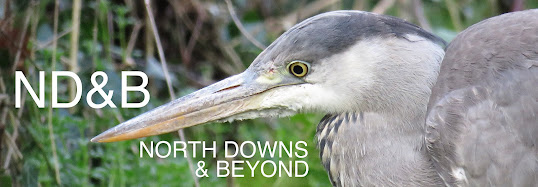Birding and the culture of blame
Over the past few days there has been a fair amount of internet chatter regarding the conduct of birders when they have been in the presence of rare species. I have deliberately avoided the use of the word 'twitcher' to describe the birders gathered at the alleged crime scenes as I'm sure that there were plenty of those present who do not want to be labelled with that overused word. There is nothing wrong with admitting to, or claiming to be a twitcher, but the word has become a lazy journalistic term for birders per se.
Ever since birders, ornithologists or, whisper it, twitchers have gathered, there have been tales of bird harassment and unruly behaviour. It is not a modern phenomenon. Those who have been lamenting a break down in birding society have not done their research.
Rare birds have always got the attention of the active birdwatcher. Anyone who has spent their time counting swallows migrating along the coast would cheer a red-rump amongst them; every ringer undertaking scientific study will have their pulse quicken when they discover an Aquatic Warbler in the mist net; every patch worker will remember the day when a scarce bird graced their own little corner of Britain. Everyone. Without exception.
So, when the chat-rooms are full of tales of poor fieldcraft dressed up as napalm-welding birding terrorists, are we to believe that the authors have never run to see a bird? Not even broken into a trot? Will they admit to, especially when unobserved, nipping over a fence to check out a funny pipit? Or tap a bush in which a skulking warbler just would not vacate? No, I doubt that there is a birder on the planet that hasn't, in the heat of the moment, done something that they ordinarily wouldn't do.
If you have driven several hundred miles, spent a wallet full of money and have also run the risk of a divorce to get to a bird, it would take the will of a trapist monk not to push the boundaries a little to be able to see the quarry. And quarry is what it is. We are all collectors, with our lists, our data gathering, our books, our knowledge.
As long as a bird is not unduly harassed or habitat destroyed, is there any real harm in a walk across a field or a wander along a hedgerow? There is a culture of blame in our society, and maybe the world of birding is not immune to this.
A lobbed brick into a reed bed - no.
Hourly walks across a field to flush a knackered migrant - no.
They are admittedly, representative of birding shades of black, and as to where acceptable behaviour begins is difficult to say, but where there is a crowd present there is normally order. If one or two hotheads try it on, they are normally pulled back and reprimanded. If someone decides to report on these isolated incidences as representative of the birding type, then this is how the myths of birding behaviour at twitches begin. And everyone loves controversy....


Comments
I doubt if there are many birders in general who could honestly say that they have not behaved in an unacceptable manner on at least one occasion.
The problem is magnified though when a large gathering of birders appear and attract the attention and come under the scrutiny of others. The smallest of indiscretions on the part of one of the birders will then be blamed on the whole group present.